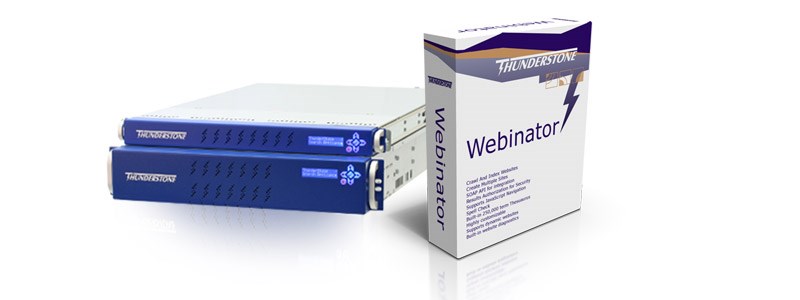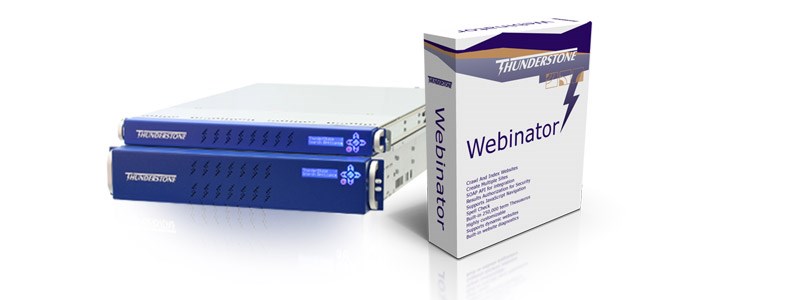While a Search Appliance can be an attractive option in many circumstances there are several possible ways to get a search solution depending on your preferences. The different possible delivery methods include hardware-based appliances, software, and service-based models. We’ll look at the different methods that exist and the pros and cons of each to help you make the right decision.
Hardware-Based Search Appliance
The hardware-based search appliance is a popular approach, and maybe the one you had in mind when you started investigating search solutions.
Some of the main advantages are that it is a self-contained solution that you can install in your data center with little effort. As an appliance from a single vendor, you have a single point of contact for any technical issues you may have, so there won’t be any finger pointing between the hardware vendor, operating system vendor, and application vendor. If something goes wrong, a single support call should resolve the problem. Of course, you should make sure that your vendor is equipped to handle your support calls and know how long it will take to fix any problems.
Another key advantage is that you don’t need to provision additional servers to run the application on or worry about incompatibilities between your hardware and operating system and the application. It just works when you take it out of the box and put it in the rack. The flip side of that is if you already have a uniform hardware environment that you like or are moving towards a virtualization environment a separate hardware appliance does not necessarily fit in well.
Virtual Appliance
If you already have a virtualization program under way, then a virtual appliance may be the right solution for you. What is a virtual appliance? Simply put, it is an image of the appliance that you can load onto a virtual server in your virtualization environment. It has all the same features of the hardware appliance.
What are the advantages of the virtual appliance? Similar to the hardware appliance, it is a self-contained image, so you don’t need to worry about operating system or software installs. Since you are providing the hardware for the virtual appliance, you can most likely use existing hardware you have and share it with other services.
In addition, most virtualization environments can also provide fault tolerance, or at least an easy way to restart the image on alternate hardware in the case of hardware failure. If you have sufficient spare capacity, you should not have any down time due to hardware problems. Since you are in control of the hardware, you can allocate as many or as few resources to the search solution to achieve the performance you want.
If you don’t have a current virtualization environment, then the additional learning experience of getting started with one is probably not worth it.
Installed Software
Another option is to install the search software on an existing server. If you are comfortable installing software, then this can be an attractive option, as you get more control of the application. Similar to the virtual appliance, you are in control of the hardware resources you make available to the search solution, as well as the backup schedules.
In addition to being in control of the hardware, you also have more flexibility to modify the solution to meet your needs. The source code to the search application is provided, unlike the appliances which are more of a black box.
The main advantages of the software solution are the control over the application, and the ability to choose the hardware it will run on. The disadvantages are that you do need to be familiar with your server’s operating systems and configurations to choose how to install the software in the most efficient manner possible.
Cloud Services
Cloud Services, also known as Software as a Service (Saas), is one of the hot trends in computing today. Essentially, it means that the vendor is hosting the solution for you, so you only need to worry about integrating the service into your existing infrastructure.
Typically, you can pay on some kind of metered service based on how much you use. This has the advantage of typically being quick and easy to set up and not requiring a lot of technical resources on your end. The downside is that the search data is no longer on your infrastructure, and you are reliant on a third party to keep your service running.
Find the Right Enterprise Search Solution for Your Needs
No matter which type of search solution best fits your criteria, it’s important that whatever you choose makes search simpler – and more powerful – for you and your users. It’s important to pick the right search solution instead of a bad choice at a cheaper price. At Thunderstone, we have decades of experience providing reliable, easy-to-use and maintain search engine software and hardware that can be customized to your specific needs and budget.
Ready to end your search for the right search engine software or hardware? Request a demo today to test out Thunderstone’s enterprise search solutions for yourself or contact us to talk to a Thunderstone expert and your organization’s search needs.







